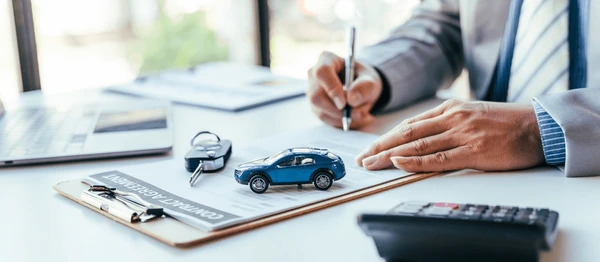
Purchasing a used car can be an exciting experience, but it comes with its fair share of risks. One of the most critical checks is whether the car is still under a finance agreement. Buying a car with outstanding finance can lead to unexpected problems, including the risk of losing the vehicle. Here’s everything you need to know to ensure you aren’t in a difficult situation.
Why Conduct a Car Finance Check?
Buying a car that’s still under finance can lead to serious issues. If you unknowingly purchase such a vehicle, the finance company has the legal right to repossess the car, leaving you without the vehicle and out of pocket. This situation can be frustrating and costly, especially if you’ve invested time and money into the purchase.
Additionally, checking for outstanding finance helps you avoid dealing with dishonest sellers who may not disclose the true status of the vehicle. By conducting a finance check, you protect yourself from potential fraud and ensure you make a secure investment.
Why Checking for Outstanding Finance is Crucial?
When a car is on finance, it means that the finance company retains ownership of the vehicle until all payments are completed. If you unknowingly buy a car that still has finance owed on it, the finance company has the legal right to repossess the vehicle. This could leave you out of pocket and without a car.
How do you check if a car is in finance?
Gather the Vehicle Details:
Start by collecting the car’s registration number, Vehicle Identification Number (VIN), and any other relevant details. This information is essential for carrying out a finance check.
Use an Online Car History Check Service:
The most straightforward way to check if a car is on finance is to use an online car history report starting at £4.99. These services provide comprehensive reports that include details about any outstanding finance, as well as other important information like previous accidents, mileage records, and whether the car has been stolen.
Check with the Finance Company:
If you suspect or know that the car is under a finance agreement, you can directly contact the finance company. Provide them with the vehicle’s details, and they will confirm whether the finance has been cleared or if there is an outstanding balance.
Ask the Seller for Documentation:
If the seller claims that the car’s finances have been paid off, request proof of settlement. This can be in the form of a confirmation letter from the finance company or a final payment receipt. Ensure the documentation is genuine before proceeding.
Be Wary of Suspiciously Low Prices:
While everyone loves a good deal, a price that seems too low could be a warning sign. Cars that are still under finance are sometimes sold at a reduced price, but buying one could lead to complications. Always investigate further if something doesn’t seem right.
What to Do if a Car is in Finance?
If you find out that the car is still under finance, consider the following options:
Negotiate with the Seller: You could negotiate with the seller to have them settle the finance before completing the purchase.
Walk Away: If the situation seems complicated or unclear, it may be best to walk away and look for another vehicle.
Conclusion
Checking if a car is on finance is an essential step in the buying process for a used car. It can protect you from potential financial and legal troubles. Always conduct a thorough online car history check, use reliable services, and don’t hesitate to ask for documentation. By taking these precautions, you can buy confidently and enjoy your new car without any surprises.

Leave a Reply